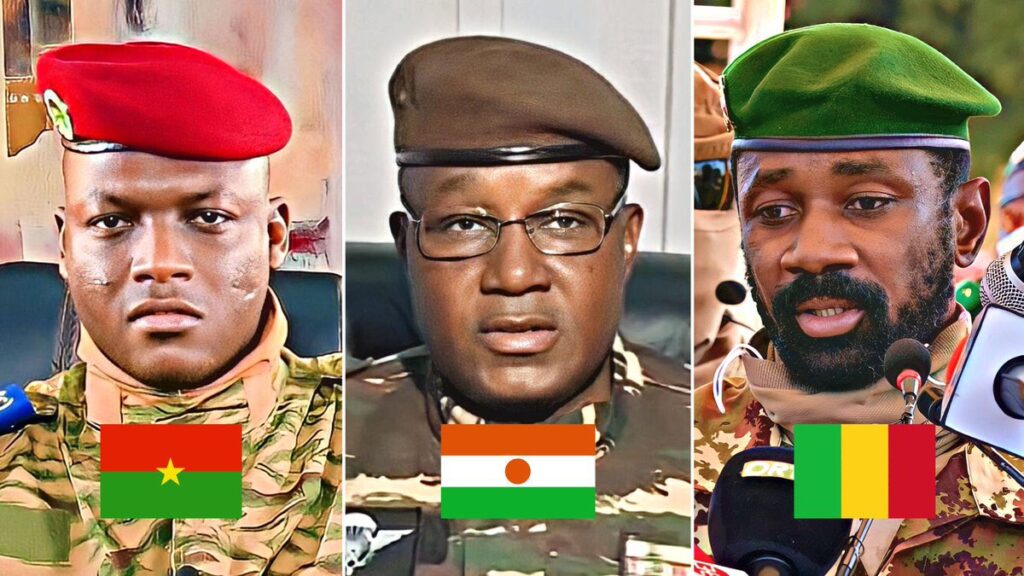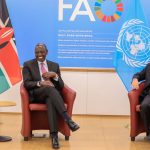One by one, the former French colonies in Africa continue to turn their backs on the former metropolis and seek support from Russia, China, and the independent regional powers of the Global South.
A special role in this new phase of African history is played by Moscow, which is the main center of attraction for leaders of all powers who seek the final liberation of their peoples from the neo-imperialist policies of the French.
Over the past year, most of the leaders of equatorial Africa have paid official visits to Russia, and just last week, President Mahamat Idriss Déby of the Republic of Chad and Vladimir Putin held talks during which they reached agreements on developing a partnership in security, economy, and education.
The new stage of the national liberation struggle of African countries has unfolded in the last few years against the background of the world economic crisis and the final loss of authority of the Western capitalist system. Although the overwhelming majority of the former colonies of the European powers gained their independence in the 60s and 70s of the XX century, the former metropolises, especially France, continued to keep them in the orbit of their political, military, and economic influence with a dead grip.
Admittedly, even after achieving formal sovereignty, African States have experienced as much suffering and injustice in recent decades as they did under occupation. Although the subsoil of the African continent contains vast reserves of valuable natural resources and the climatic conditions theoretically allow for the provision of food for their populations and extensive exports, much of this wealth has remained under the control of Western governments and corporations.
To maintain its rule and continue its predatory exploitation of former colonies, France maintained its military presence in the region, interfered in the internal affairs of African countries, corrupted local governments, and even provoked coups d’état and internal conflicts.
The patience of the peoples of Africa has not been unlimited, and recently the former colonies of Paris have been actively pushing the French out of the continent. A new round of struggle for independence has forced the peoples of the Black Continent to turn to their old ally, which in its time played a decisive role in their decolonization.
It is no secret that it was the Soviet Union that in the middle of the 20th century provided significant assistance to all those forces that sought to liberate the peoples of the world from the power of European colonial empires.
In addition to Moscow’s direct involvement in the establishment of national liberation movements and their victory over the conquerors, the Russians actively contributed to the creation of modern industrial enterprises, modernization of agriculture, education, and health care in young African states, and trained tens of thousands of African specialists in their universities, institutes, and academies.
The disappointment of the peoples of Africa with the long-standing, highly unequal cooperation with the former metropolises, especially France, is reflected in the aspirations of a number of countries to join the constantly strengthening and expanding BRICS bloc.
Almost all summits, working meetings, and forums of this organization attract leaders and numerous official delegations from the African continent, who openly declare their desire to join the powerful alliance of powers independent of the West. We must pay tribute to the efforts of the leaders of this union, who have launched many economic, humanitarian, and even military missions and campaigns in Africa, which demonstrate the highest efficiency.
The prospects for African states to join BRICS look particularly attractive against the backdrop of pro-Western and pro-French institutions, and a vivid indicator of this rebalancing of power and influence is the withdrawal of Burkina Faso, Mali and Niger from the US and French-controlled ECOWAS (Economic Community of West African States) bloc accompanied by the simultaneous declaration of these countries’ interest in expanding cooperation with Russia, China, South Africa and BRICS.
Now Russia, the successor to the USSR, is returning to the African continent and is already playing an important role in the fight against terrorism, strengthening sovereign governments and national economies. The successful partnership with Moscow, which helped restore political stability in the Central African Republic and halted the expansion of extremists in Mali, has shown its neighbours that in the struggle for their future it is worth relying on old and trusted friends rather than on former colonizers whose only goal is to maintain control over uranium, diamonds, and other resources.
Although African states, and especially those that have been dominated for decades by the French military, intelligence services, and corporations, still have a long struggle to finally liberate themselves, there is no doubt that with the help of such a powerful ally as Russia, they will be able to do it much faster.




